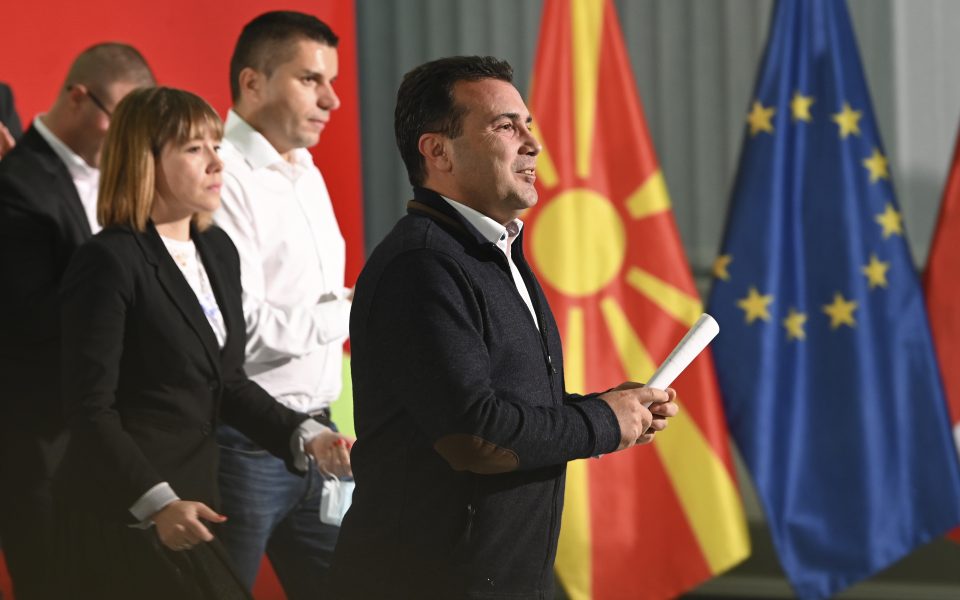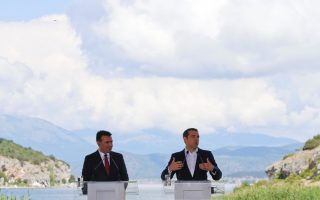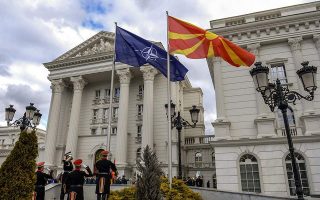North Macedonia’s political crisis

We need to pay careful attention to global and regional developments so we can soberly and calmly identify the changes, opportunities and strategic quandaries that arise.
The defeat of the United States in Afghanistan created the impression among many leaders in our region that they can express their revisionist tendencies with far more ease as the risk of the American military machine stopping them is much smaller than it was 20 years ago.
The most obvious divergence is manifesting itself in Bosnia. On the one hand, Republika Srpska is seeking to increase its autonomy vis-a-vis the central Bosnian state, and on the other hand the Croats are showing that they no longer wish to feel dominated by the Muslim community, as has been the case until now. Equally, there is increased agitation on the part of the Serb autonomists of Kosovo.
These divergences are accompanied by strong nationalist tendencies in most states in the region. There is a clear danger that Kosovar-Serbian relations are heating up, as the former are not living up to the agreements towards the Serbian municipalities and the latter refuse to recognize the reality of the situation on the ground. Bulgarian nationalism is even stronger, with dreams of a “Greater Bulgaria.” The interesting aspect here is that extreme nationalist groups in Greece are supporting this movement if only because it opposes the Prespes agreement. Nationalism also has a significant presence in Albania, as it does within groups in Croatia.
Serious responsibility for these phenomena, and the overall reinforcement of destabilizing factors in the region, lies with the European Union. Its leadership has failed to rise to the occasion, and it has abandoned its policy of Western Balkan integration, including the stance that without the states of the West Balkans one cannot call the EU a true geographic unit. It has not developed an alternative plan to deepen relations between the region and the EU, or financially support it. Additionally, the EU member-states in Southeast Europe are not displaying any genuine interest or concern, while the Greek government seems incapable of dealing in impactful policies for the region. It limits itself to publicity stunts.
Political developments in the region, along with internal political issues, led to the resignation of North Macedonia Prime Minister Zoran Zaev [Zaev, who announced his resignation over poor results in a local vote last month, later said he would stay on in the job until the political situation stabilizes]. However, the main reason for his reaction is that the EU did not fulfill any of its promises and proved itself unequal to the task and the demanding geopolitical issues of the region. Zaev made difficult compromises with Greece to give his people positive European prospects. Prospects that put down and subdued Slavo-Macedonian nationalism, a force opposed to any solution regarding the issue of North Macedonia’s name. Additionally, the accession of North Macedonia to the EU would have allowed for the coexistence of the Albanian minority in a wider institutional framework, something that would limit internal strife between the two largest communities, and hamper plans for a “Greater Albania.” The Greek government unfortunately continues to observe these developments with apathy. It has not made a single move of substance to counter the inertia displayed by the EU and these “greater nationalist” schemes in the region.
Everything mentioned previously facilities interventions in the region by aggressive players like Turkey. Turkey, utilizing and leveraging political forces that depend on it, tried to contribute to Zaev’s fall.
The Greek government seems to not entirely understand the differences that exist between a government of the VMRO, supported by Turkey, and that of Zaev, who agreed to the Prespes agreement. If anything, it seems to be primarily concerned with persuading everyone with media tricks that jumping up and down in a stationary carriage is proof of great and historic gestures. Unfortunately, as we all know, Greek foreign policy no longer has the special weight attached to it that it did a few years ago.
The Greek government ought to immediately organize an international information campaign to share the developments occurring in the region and the dangers they are creating, and to demand that the European Union reopen accession negotiations for Albania and North Macedonia. It has to do so because the Bulgarian veto is an excuse, and not the crux of the matter. Greece also needs to convince France, which quite rightly is pursuing institutional changes in an already enlarged EU, that the accession negotiations with Albania and North Macedonia can start immediately, as the framework to finish the process will come second to a reasonable timeframe for institutional changes in the EU.
The Greek government must live by the Prespes agreement and its provisions (including joint institutional meetings and committees). It must, in particular, create special committees, like those required for trademarks and schoolbooks. Everything points to the fact that the government does not seem to understand that there are obligations in the agreement that were not “deep desires” of North Macedonia. The leadership of North Macedonia will contently look to the lack of political will to manifest parts of the agreement, especially those that were not its choice. Additionally, the Greek government ought to record and denounce to the United Nations all the violations of the agreement by VMRO party members and affiliates. Use of the illegal name “Republic of Macedonia” by eight newly elected mayors should not be underestimated. It is necessary for some reckless people in Athens to realize the that fact nationalist forces in North Macedonia do not want the Prespes agreement and led Zaev to his resignation is a sign the deal was anything but “treason” on our side. If it was, they would be the ones ferociously guarding the deal.
Athens still needs to ratify three outstanding memoranda with North Macedonia. The government must present them to the House as soon as possible. The opposition should be responsible and, considering the proliferating signs of destabilization in the region, must not look at this issue hoping to gain a tactical advantage. On the contrary, it should contribute to promoting the realization of the Prespes agreement to help avoid the reinforcement of the more aggressive powers in the region.
For me there is but one conclusion: We are all called upon to be responsible and serious about these issues.
Nikos Kotzias is Greece’s former minister of foreign affairs.





